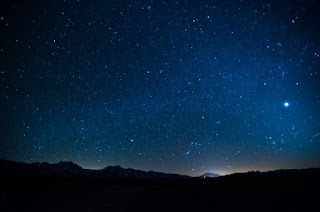Where
do the myths of glorious war come from? How
are mud and bloated death transformed into heroic action? As the war dragged into it fourth year, Ford Madox Ford wrote the poem "Footsloggers," attempting an answer to these questions as men,
armies, and nations continued to stumble forward, hoping for an end to the
horrors.
Ford
Madox Ford (whose real name was Ford Madox Hueffer, and under which name he
published his volume of war poetry) is best known as the novelist who wrote Parade's End, a four-volume fictional
account of the war and its effects. Brendan Ball has
written, "Ford the novelist at least has some sort of name; Ford the war
poet has none whatsoever. The face, as
the saying has it, simply did not fit. World War I was the stage for the
Flower of the Nation, the young bloods of birth and breeding tragically cut
down in their prime, and Ford on joining the infantry was already a pudgy
41-year-old with a face to which no camera angle nor any degree of light or
darkness could give romance."
An
unromantic face, a lost voice, and a poem with an odd title – the deck seems
stacked against this poet and literary effort, but "Footsloggers" is
a poem worth reading. It is lengthy, so I’ve included only a short excerpt, but for those wanting to read the entire poem, the volume in which it was published in 1918, On
Heaven, and Poems Written on Active Service, is available online ("Footsloggers" appears on
pages 58 – 76).
An
excerpt from "Footsloggers"
by
Ford Madox Ford
So, in the Flanders mud,
Breathe
life into the State from our rattling lungs,
Anoint
the State with the rivulets of sweat
From
our tin helmets.
And
so, in years to come
The
State shall take the semblance of Britannia,
Up-bourne,
deep-bosomed, with anointed limbs…
Like
the back of a penny.
VI
For I do not think
We
ever took much stock in that Britannia
On
the long French roads, or even on parades,
Or
thought overmuch of Nelson or of Minden,
Or
even the old traditions….
I don't
know,
In
the breathless rush that it is of parades and drills,
Of
digging at the double and strafes and fatigues,
These
figures grow dimmed and lost:
Doubtless
we too, we too, when the years have receded
Shall
look like the heroes of Hellas, upon a frieze,
White-limbed
and buoyant and passing the flame of the torches
From
hand to hand….But today it's mud to the knees
And
khaki and khaki and khaki….
And the love of one's
land
Very
quiet and hidden and still….
The
images that open this excerpt are stunningly pictorial: the entire British Empire has been shrunk
into the body of one wounded soldier who is being carried on the back of a mate, resuscitated
by the "rattling" breath of a comrade-in-arms, and anointed in a last
rites ceremony "with the rivulets of sweat/From our tin helmets." The men's care for "Britannia" in
the mud of the trenches is what will allow her to rise from the war,
phoenix-like, once again gloriously whole and serene.
Yet
the poem confesses that the men who give so much to keep Britannia alive "never
took much stock" in the noble image of the Empire, never thought much
about the long-dead heroes of past wars such as Lord
Nelson, nor of long-ago military victories such as the 1759 Battle of Minden.
For
the men in this war, memories of war and glory have been "dimmed and lost"
by the "breathless rush" of drilling for battle, being strafed by
machine guns, and digging trenches so as to avoid the murderous artillery shells. There's neither time nor place for the
glorious military traditions of Britannia in "mud to the knees/And khaki
and khaki and khaki." What keeps
the men fighting, what helps them to endure is "the love of one's
land/Very quiet and hidden and still."
 The
excerpt closes with a final ironic twist: the soldier knows
"doubtless" that his war, when remembered, will bear little resemblance
to its gruesome reality, but instead, like Britannia itself, will be idealized. The muddy, mutilated and exhausted men in
khaki shall be transformed until they resemble the carved ancient Greek heroes that
decorate columned temples. Restored to
health and sanity in the memorials of the nation, the soldiers of the Great War will be remembered as "passing
the flame of the torches/From hand to hand."
The
excerpt closes with a final ironic twist: the soldier knows
"doubtless" that his war, when remembered, will bear little resemblance
to its gruesome reality, but instead, like Britannia itself, will be idealized. The muddy, mutilated and exhausted men in
khaki shall be transformed until they resemble the carved ancient Greek heroes that
decorate columned temples. Restored to
health and sanity in the memorials of the nation, the soldiers of the Great War will be remembered as "passing
the flame of the torches/From hand to hand."
Where
do the myths of glorious war come from?
From memory that needs to find a purpose in the pain and suffering.
As Hall argues, Ford is
unusual among First World War poets because "he brought to the trenches the
full perceptive power and skill set of a mature man and accomplished writer,
and he survived to bring them home again."







